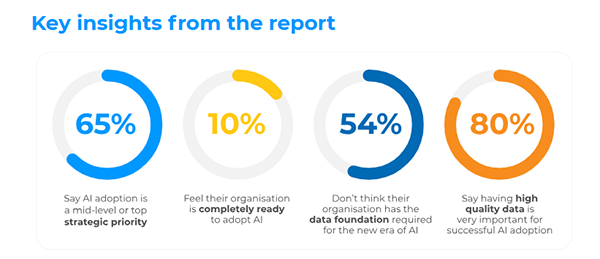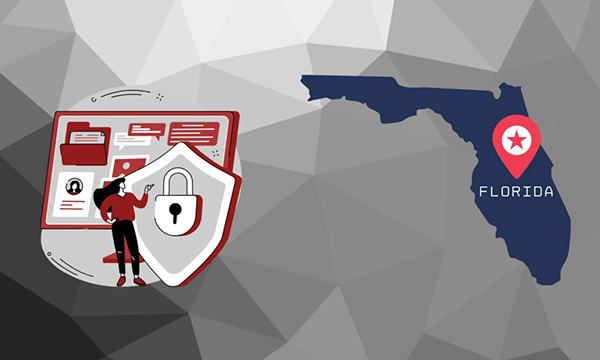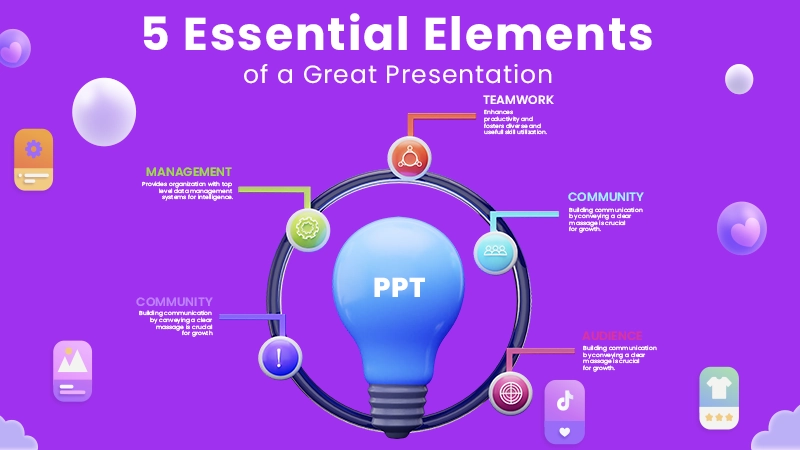States of Florida are also beginning to put in place appropriate mechanisms to comply with existing data protection legislation.
Known as the Florida Digital Bill of Rights, this notable law has recently received a lot of attention as this sweeping legislation fundamentally upgrades consumer control over personal information collected by companies.
It all started on July 1, 2024, when this law established strict guidelines surrounding the private sector, and allowed individuals to have control over their data.
This includes the right to access that data, as well as the right to apply suitable corrections or delete the relevant data.
The law, in addition, lays restrictions on the sale of personal data and other sensitive data use. Also, learn about Securing Digital Transactions by reading this article.
Now, let’s just take an insight into the blog to know more!!!
Key Provisions of the Florida Digital Bill of Rights
At its core, this landmark legislation aims to grant Florida residents more control over personal data collection, usage, and distribution by instituting three primary provisions:
A. Strict Consumer Data Protection Rules
First and foremost, the Florida bill establishes clear requirements surrounding consumer data protection protocols including both collection disclosures and distribution consent:
- Data Collection Transparency: As per Harvard Business Review, any company gathering consumer data must clearly inform individuals regarding the types of information collected, the purposes for gathering it, and the types of third-party entities it gets shared with.

- Explicit Consent Mandate: Documented opt-in consent must be required from consumers before an organization can use or share any collected data for secondary purposes like targeted marketing, analytics enrichment, or third-party partnerships.
B. Expanded Business Transparency & Accountability
The bill also expands mandatory transparency from private sector companies benefiting from consumer data when ensuring accountability should problems emerge:
- Updated Privacy Policies: All businesses must overhaul external-facing privacy policies detailing data-gathering practices aligned with law changes even if they seem mundane to avoid “violations through vagueness” during opportunistic audits.
- Regular Policy Communication: Beyond static online policy postings, reminders to subscribers, loyal customers, and email list recipients should recur periodically regarding data rights and revocation options to show good faith efforts in keeping clientele continually informed.
Individual Consumer Data Rights & Control
Finally, consumers rightfully regain control over personal data flows with three primary privileges:
- Accessing Personal Data: Simple data subject access request portals must facilitate consumers obtaining copies of any retained information accumulated about them by petitioned companies.
- Correcting Inaccurate Data: Clear procedures must allow rapid corrections or dispute submissions should individuals notice errors in current data versions that could propagate flawed modeling/targeting.
- Deleting Data Upon Request: For qualifying data deemed non-essential for vital business operations, rapid information destruction protocols must activate upon verified requests without obstructionist delays.
With robust provisions enacted, companies must revisit existing data supervision models dramatically to continue Florida operations.
Implications for Regulated Industries
Due to heightened legal liability and steep penalties threatening non-compliance tied to the Florida Digital Bill of Rights data standards, entities in healthcare and law must prioritize alignment particularly due to the sensitive data entrusted to maintaining patient and client confidences.
Healthcare Data Compliance
The healthcare sector faces dual compliance challenges adhering to both longstanding HIPAA hospital patient privacy rules as well as new digitally-focused consumer protections:
- HIPAA Alignment: Ensure the latest consent policy documentation and data security controls map equivalent or stronger standards compared to HIPAA avoiding rule conflicts leaving vulnerabilities.
- Patient Rights Expansion: With patients now legally empowered to request health record disclosures or corrections directly, updated protocols facilitate the timely fulfillment of reasonable disclosure appeals.
- Telehealth Compliance Fortification: As virtual medicine expands necessity during transitional care moments, verify full data protection stack functioning to equivalent standards as traditional channels.
Do You Know?
% of Americans express concern about how businesses use personal information.
Legal Industry Compliance
Meanwhile, law firms and legal professionals juggle appropriately exempting certain privileged case data from consumer access when embracing transparency surrounding client experience personal information:
- Air-tight Client Confidentiality: Continuously vet evolving regulation nuances ensuring legally privileged information and case preparation notes remain properly excluded from client data requests unless express consent gets provided.
- Responsible Document Management: Develop consistent processes allowing clients to easily acquire personal information like intake forms, billing statements, and contractual agreements on demand or via scheduled recurring access.
- Aligned Data Retention Policies: To align with mandated deletion requests within reasonable periods for qualifying data, formally define organizational document lifecycle blueprints detailing metadata-driven retention rules applied globally.
Comprehensive Workforce Training
Enlisting personnel at all levels and understanding shifted data handling allowances, security vigilance, and privacy communication responsibilities ensures consistency in managing consumer relationships.
Responsible Data Storage and Communication
Implementing robust security foundations fortifying informational integrity plus transparent interaction touchpoints further breeds client confidence:
Advanced-Data Security: Apply enterprise encryption insulating sensitive personal data secured both at rest within database servers and in transit across networks to definitively seal vulnerable leakage entry points exploiting outdated cyber defenses.
Adoption Guidance Through Compliant Managed Services
There are IT companies like compliant Stuart IT Support that offer numerous business support to ensure the efficient security of their data.
These services can help businesses focus on areas that might require more security and improvement rather than distractingly draining excess resources and scrambling to decode intricate regulations independently.
Hence, providing you peace of mind as you know that your businesses’ tech data and information are secure and compliant.
Industry-Specific Considerations

As specialized fields, healthcare, and legal verticals each face unique data hurdles under expanded privacy statutes:
Healthcare Privacy Challenges
As more and more people are moving forward to use telehealth options, it’s become more vital to be extra careful when protecting patient’s information.
- Telehealth Adoption: Today almost everything is surrounded by technology in the area of the medical field.
Considering this it has become quite necessary to be more careful when securing the patients’ data.
There can also be possibilities of cyber attacks to access the information, therefore consider implementing strong security measures as well.
Legal Services Privacy Considerations
There’s no doubt that the implementation of digitalization in legal works has brought significant advantages, unfortunately, there always is a bad side to every new innovation.
- Legacy Documentation Digitization: Unlike traditional methods, technology allows you to easily scan and store the case documents on virtual files.
This way you can keep the file for as long as you want, even after 20 years you require that file, you have it all safe in your virtual file.
- Court Data Complexities: Only a reliable and proper use of technology can benefit you in every aspect.
Thus, when using tech in a law court, the lawyers must ensure the technology they are using be it online documents or online video calls, they are not only reliably safe but follow the court rules.
As the privacy laws are getting more strict, the attorneys are required to learn the accurate use of tech to not harm the privacy laws.
Conclusion
Florida’s transformative digital privacy bill signifies the beginning of data rights expansion into once minimally governed commercial territory.
Organizations still limiting information utilization transparency and individual access controls face rising reputation vulnerabilities without evolutionary upgrades – operationally from internal digitization and ethically from consumer-aligned data dignity policy adoption.
Thus, healthcare services, law offices, and technology consultancies carrying disproportionate data custody are required to prepare for the new data privacy laws in Florida.
It’s also vital to follow the rules properly so that in any case of privacy, they don’t face any legal issues and avoid huge fines.









